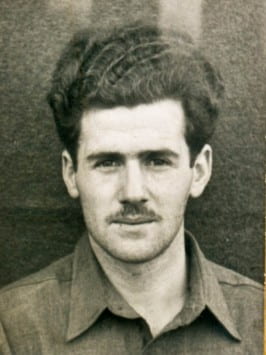Hello and welcome back to my blog! Before diving into today’s topic I’d like to take a moment to say Merry Christmas, Happy Hanukkah, and most of all, a VERY happy and LUCKY New Year. We could all really use it after 2020. In saying that and comparing the past year of my life to some of history’s other difficult times, I feel rather small. Over the past 5 weeks my class has been working towards the production of our second podcast episodes, the topic being World War 2 and the vessels being our individual themes. Now when we compare the year 2020 to anywhere from 1939-1945, I can’t really complain all that much. Yes, the global pandemic has wrecked havoc across the entire globe and my normal life was turned upside down, but at least I wasn’t being bombed. The causes and consequences of events like the Second World War or the Covid-19 Pandemic will be a part of our history for a very, very long time. Possibly one of the most important ways of remembering and understanding the atrocities of WW2 comes from memory, from the stories of those who witnessed it. The physical documentation of the war is astounding compared to any other historical event before it, but hearing people who experienced it firsthand speak about their lives is on a whole other level.

Gigglekid / Pixabay

MiroslavaChrienova / Pixabay
Our driving question for this project asked us to try and use the stories of others to build an understanding of the causes and consequences of WW2. In doing so we completed many milestones, perhaps the most important to me was milestone 2. Research is never easy, if it is you should probably look a little deeper into your topic. My idea for my episode was to use a mystery or conspiracy from the war to bring a story to life. Instead I got lucky and landed an interview with a senior researcher at the Anne Frank House in Amsterdam. My interviewee, Gertjan Broek published an article in 2016 covering his theory on how the Frank family was discovered by the Nazi’s. As my main source of information, this interview was by far the most important piece of my research. One of the best things about this interview and my research overall, is how much I can clearly see my progress since last year. I’ve conducted 2 interviews so far in the 2020/21 school year and looking back at each one really gives me an idea of how far I’ve come from building my interview skills. In interviewing Gertjan Broek, I’ve gone very far in being a global collaborator.

bernswaelz / Pixabay
In building my knowledge of the events, causes, and consequences of WW2 and the mystery of how Anne Frank and her family were discovered, I was able to transfer what I’d learned into a script and develop my 2nd podcast episode. At the time I’m writing this, podcasts aren’t as daunting as they were when I was making this episode. It’s not necessarily the technical side of things, but more the context. If you’ve read any of my blog posts from grade 8 and 9, you know that I have had trouble keeping things concise. In order to stay within a 10-20 minute run time for each episode, I’ve had to learn to rearrange information and cut the unnecessary stuff, even if I think everything is valuable.
Milestone 3 challenged us to respond to text in new and creative ways. Our task was to read or listen to a piece of text, analyze it, and share our thoughts and ideas in a class discussion. In each discussion I felt that I contributed and took a lot away from hearing everybody’s differing opinions. Not only did we share our ideas, we also discussed the Three Act Structure, a form of storytelling that we’ve been newly introduced to. With each story analyzed we’d decide what the Three Act Structure would look like. Learning to do so has added to my arsenal of storytelling methods and tricks and is already contributing to my understanding of text in the current project we’re working on.
In conclusion, my understanding of what caused WW2, as well as the short term and long term consequences post war, has been developed and reached a new level where I feel knowledgeable enough to share my thoughts and opinions. In my podcast episode I think I did a great job at exhibiting all of my ideas, as well as everything I learned from Gertjan Broek.
Ciara
